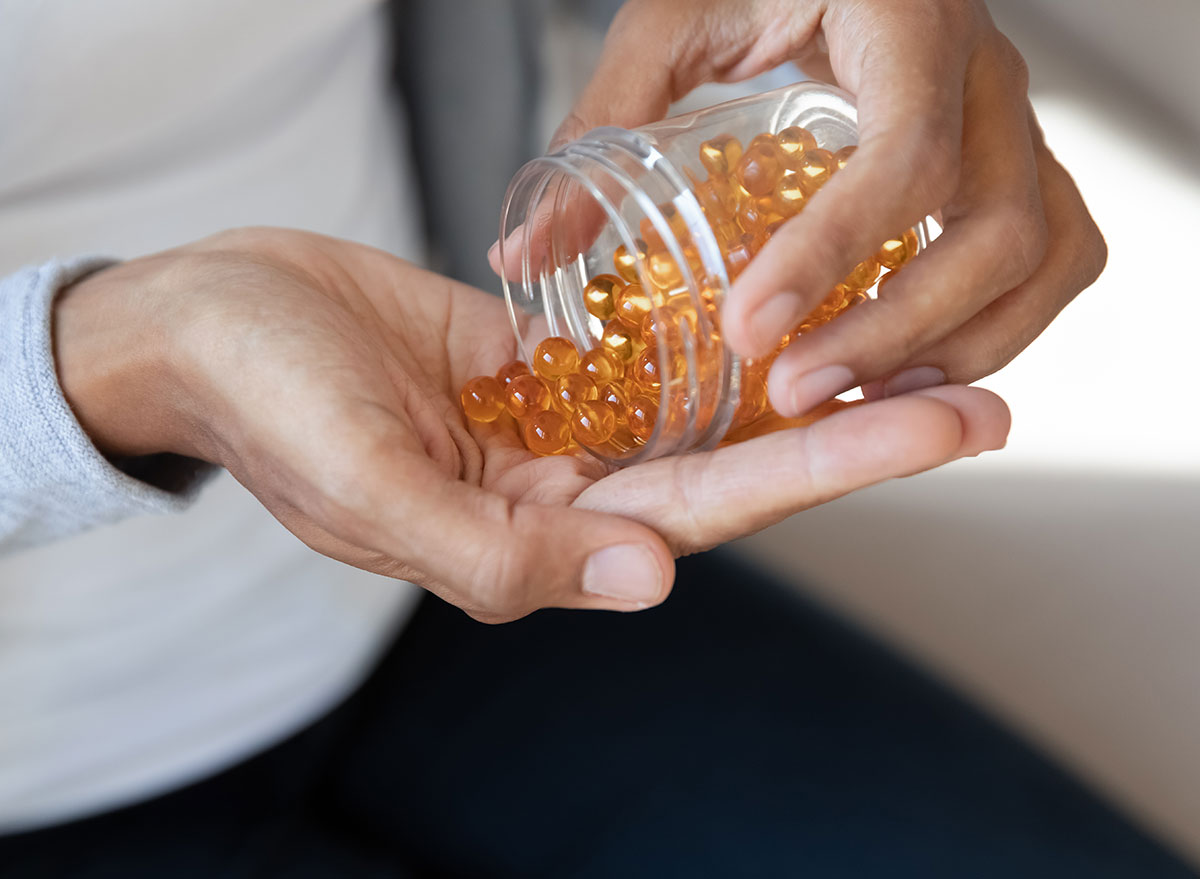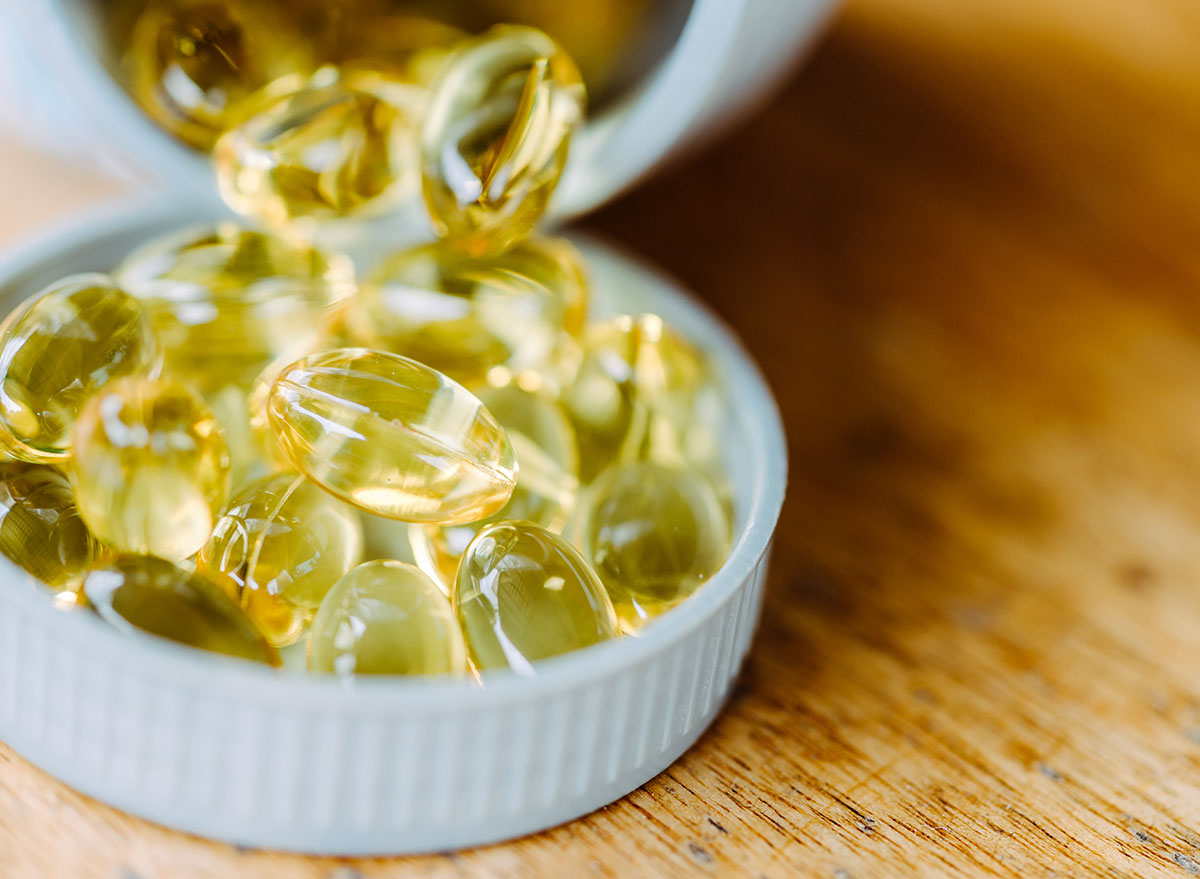Surprising Side Effects of Not Taking Immunity Supplements, Say Dietitians

With all the holiday festivities approaching, it’s hard not to let the anxiety of flu season get to you, especially with COVID-19 still lingering. But for those who still want to be able to enjoy the next couple of months of gatherings and activities, doing what you can to boost your immune system can really help.
“We are lucky to live in an age where we can boost our immune system and prevent illness through diet and dietary supplements because this knowledge has not always been available to every generation,” says Trista Best, RD at Balance One Supplements, “and the benefits of taking immune-boosting supplements are widespread and can improve our overall health and longevity.”
But what are some of the effects of not taking immunity supplements this season, and are they worth the investment? We talked with a couple of expert dietitians to find out.
Continue reading to learn more about taking immunity supplements, and for more healthy eating tips on a daily basis, make sure to sign up for our Eat This, Not That! newsletter.
What are immunity supplements?

The most common form of immunity-boosting supplements are vitamin pills, and it’s important to know which ones are worth taking and which ones you can leave behind.
“Immune boosting supplements come in either individual vitamin form like vitamin D or C, or they may be a proprietary blend that combines multiple nutrients like zinc, vitamin C, B vitamins, and selenium,” says Best.
In an interview last year, Dr. Fauci went on record and said that vitamin D and vitamin C supplements are the only truly effective immunity supplements to take, and that there isn’t much data supporting the rest.
Your stress levels can increase

One possible unexpected side effect of not taking your immunity supplements is the possibility of added stress. And according to Courtney D’Angelo, MS, RD, author at GoWellness, this could turn into a vicious cycle of more stress.
“It’s possible that your stress levels may increase if you have a weaker immune system, and if that stress becomes long-term, it could weaken the responses of your immune system even further,” says D’Angelo.
You may contract the cold or flu more easily

As we approach the colder months, many of us are doing what we can to avoid catching the dreaded winter cold or flu. And according to Best, taking immunity supplements like vitamin D or C can help our odds.
“Choosing not to take an immune supporting supplement may put you at greater risk for obtaining community illnesses like the common flu or even stomach viruses,” says Best, “because a body that isn’t prepared to fight off these conditions is more susceptible to contracting them.”
Your illness may be more severe

Another thing to consider with boosting your immunity this season is that the stronger your immune system, the greater chance you have of experiencing less severe symptoms if you do get sick.
“Along with lower immunity and more susceptibility, the individual who chooses not to take an immune-boosting supplement is at greater risk for their illness being more severe and lasting longer,” says Best, “and although those with a strong immune system can still become ill, their body is often able to attack the virus or bacteria more efficiently and effectively.”
Read these next:
- Drinking Habits to Avoid If You Want a Better Immune System, Say Dietitians
- This Supplement Can Raise Your Cancer Risk, Experts Say
- The #1 Vitamin C Supplement to Take, Says Dietitian








